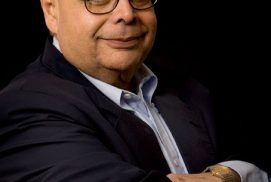10 September 2015
The late Egyptian theologian Nasr Hamid Abu Zayd (10 July 1943 – 5 July 2010) was destined to be an Azharite sheikh, but the death of his father when he was fourteen, and the obligations of life led him to contribute to family household from an early age. However, he did not leave his scholarly thirst; he got his PhD in 1981 with a thesis on “The Philosophy of Interpretation: Mohi Eddin Ibn Arabi’s Method of Interpreting the Quran.” He belonged to the Muslim Brotherhood in Tanta in 1954, worked in Radio, and held lectureships and fellowships in Sudan, the USA, Japan, and the Netherlands; he received scholarly rewards for his works from Tunisia, Jordan and other international institutions. He was the student and colleague of the living famous philosopher Hassan Hanafi (b. 1935), whose project of the Islamic Left he (Abu Zayd) critiques especially in Critique of Religious Discourse (1990). He also met in scholarly discussions with contemporary philosophers-theologians like Sadeq al-Azmeh, Mohammed Arkoun, Abdolkarim Soroush, and Mohammad Amareh. Nasr Hamid Abu Zayd will be remembered as a staunch rationalist and liberal theologian that defends three major values from within his own Islamic faith – reason, liberty, and justice. In his own words, “Islam truly liberated man”; to recover that achievement, re-interpreting the Sacred Text is a must for renewed liberation, based on considering “this-world” the essence of existence. This is an homage to his great contributions at the age of Arab-Islamic intellectual predicament, and political turmoil led by bloody hijackers of the Quran.



